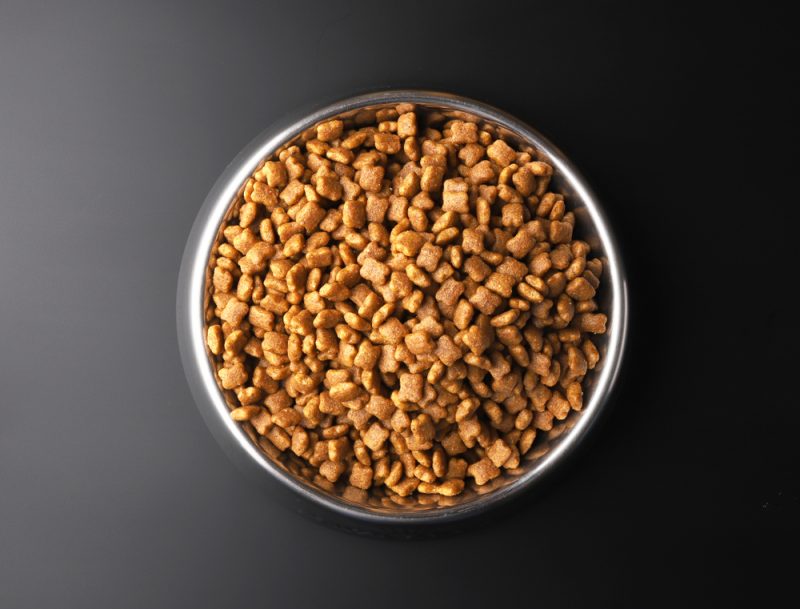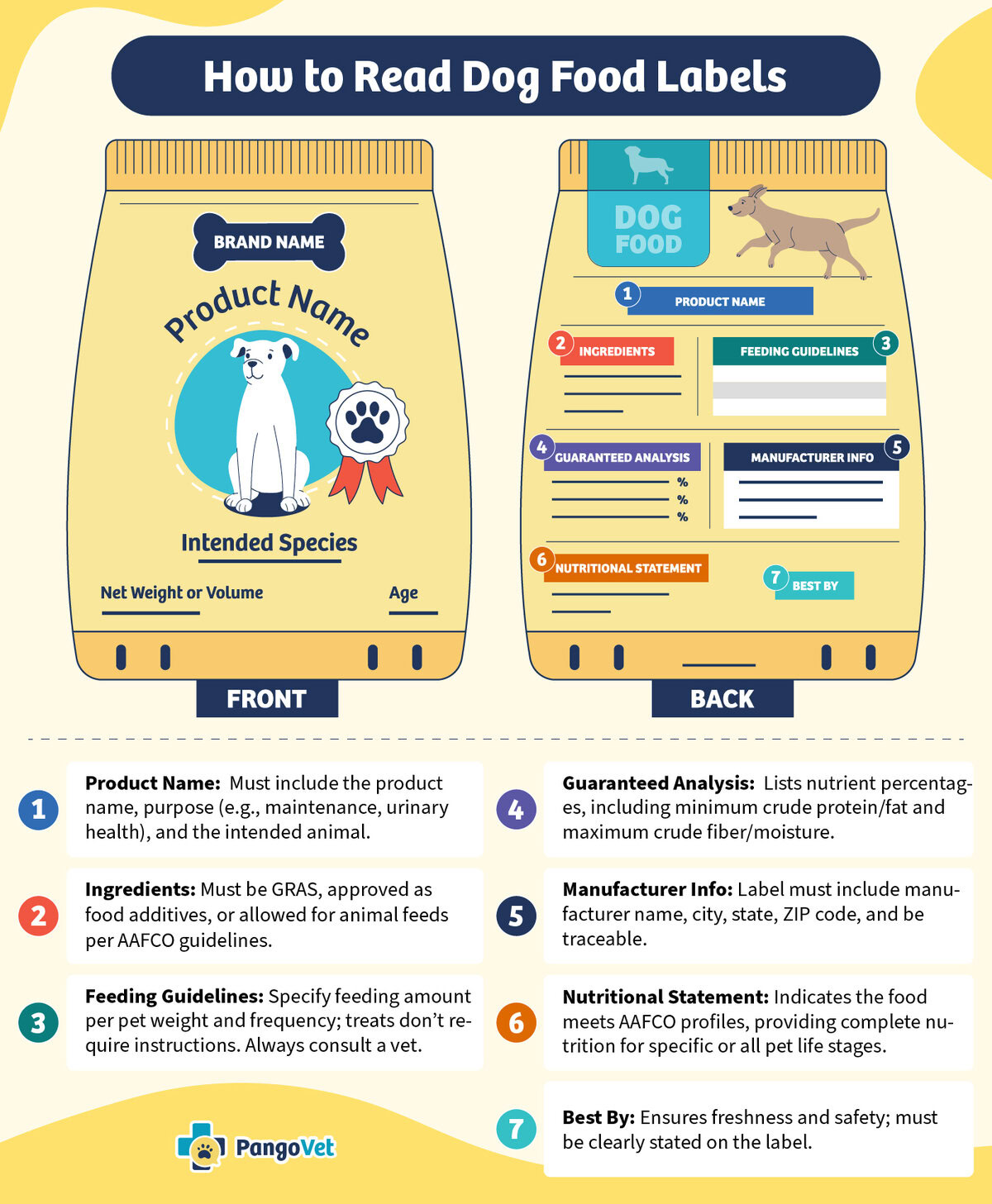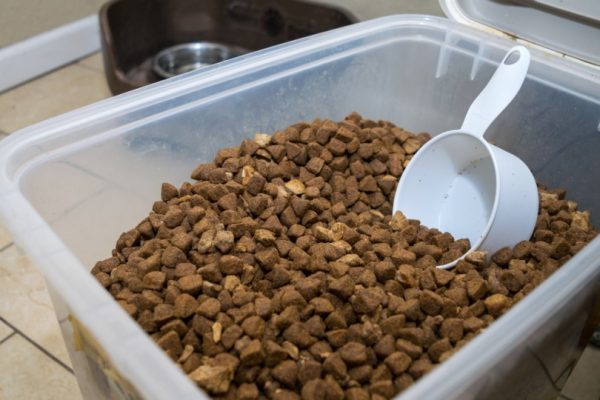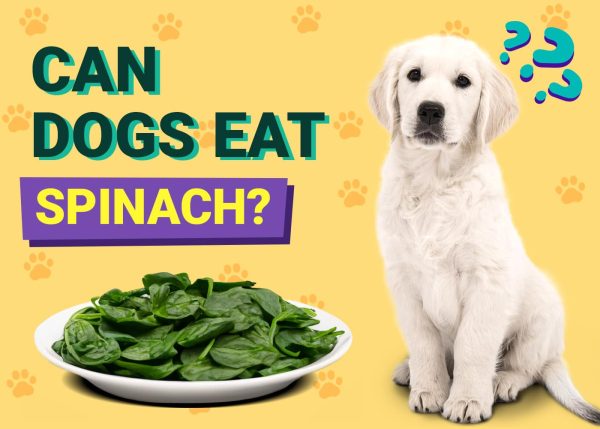In this article
View 4 More +The pet food industry is a large one! In fact, in 2023, in the United States $53.2 billion was spent on pet food and globally, $133.9 billion was spent.1 With such a large market comes options galore. One of the more recent terms often marketed to pet owners is that of holistic dog food.
What is this exactly, and what are the positives and negatives for foods that are labeled as such? In this article, we’ll explore this concept more thoroughly to help you become the most educated pet parent you can be!

How Does It Work?
What does holistic mean in veterinary medicine? According to The American Holistic Veterinary Medical Association, holistic medicine aims to treat the whole individual—the body, mind, and spirit. While it may include a variety of components like acupuncture or Chinese herbs, another key component is nutrition or the therapy of food. In the world of holistic medicine, nutrition may be as useful as a preventative as it is a treatment.
With that being said, what is holistic dog food, then? Unfortunately, there is no set definition or standard for what this is. Some companies may have their own definition of what they mean by having holistic food, but essentially the term is meaningless because there has been no agreed-upon definition by the pet food or veterinary community. There are also currently no legal ramifications for using the marketing term “holistic.”
AAFCO (the Association of American Feed Control Officials), which sets pet food standards, does not define the term. In addition, there is also no regulation or definition of the term from the FDA (Food and Drug Administration in the United States) or the USDA (U.S. Department of Agriculture).
Unfortunately, because there is no agreed-upon definition for holistic dog food, the answer to what holistic dog food is, as a whole, is not known.

What Are Some Different Types of Holistic Dog Food?
A search for holistic foods that are currently available on the market can include dry dog food, canned or moist dog food, raw dog food, crunchy or soft treats, and the like.
Various brands may claim different advantages for their holistic dog food such as the following: touting more healthy ingredients, limited and/or wholesome ingredients, the use of superfoods, smaller batches of food manufactured at a time, free from GMOs/fillers/chemicals, as well as having their food nutrient, vitamin, and mineral-rich.
Advantages of Holistic Dog Food
- Select pet owners may feel that holistic medicine and food, in general, are more in line with their philosophy on life.
- Some dogs may really enjoy the taste or do well on a food that claims to be holistic.
- Others may claim that holistic dog food has more healthy ingredients for their dog.
- Holistic food may help one feel they are giving their dog the best nutritional value they can.
- Those who want to feed their dog holistic food may think it is considered a premium dog food.
Disadvantages of Holistic Dog Food
- Not AAFCO defined and regulated.
- Any company can put “holistic” on their dog food or market it as such—it’s a somewhat empty definition.
- There are no current studies proving that it is more beneficial than non-holistic dog food.
- The term holistic does not guarantee a quality product or enhanced nutritional value.
- May be very expensive.


Frequently Asked Questions (FAQ)
Is Holistic food bad?
Not necessarily—the term “holistic” may not have a concrete definition, but that does not mean that a specific food with that term is bad for your dog!
There are a lot of factors and tips from AAFCO, WSAVA’s (World Small Animal Veterinary Association) Global Nutrition Committee, Board Certified Veterinary Nutritionists, as these individuals are experts on the science of nutrition that can help you determine the best food for your dog. A few starting tips include some of the concepts below:
- Ensure you are feeding food made for the right species and stage of life for your pet.
- Pay attention to your dog and their health while on a certain food.
- Follow the science; be open to an ever-changing landscape.
- Ensure purchased food has an AAFCO label or if in Europe, a European Pet Food Industry Federation (FEDIAF) label, and a Nutritional Adequacy Statement to ensure it is complete and balanced.
- Pick a responsible, evidence-based brand of food.
- A Board-Certified Veterinary Nutritionist and/or those with a Ph D in Animal Nutrition should be a part of the picture for formulating a brand’s dog food.
- Companies that have or sponsor nutritional research and studies that are published in scientifically peer-reviewed journals for their pet food may show they are dedicated to providing the best product possible.
- Are there immediate contact options to reach a company (phone number, email, etc)?
- Have strict quality control measures.
Is natural or organic the same thing as holistic?
Because AAFCO has specific criteria that they use to define the terms both natural and organic for dog food, we can learn and understand what it is we are getting when those words are used. However, holistic food does not have a similar definition, so dog owners and veterinary professionals alike don’t know what to expect when a food is labeled as holistic.
Theoretically, a company could market its food as holistic without meeting any type of meaningful criteria. The general concept of holistic food is not necessarily the same as the definitions of natural or organic food, but it doesn’t rule it out either. Furthermore, without a definition for holistic, it can be meaninglessly put on any dog food, organic, natural, or not.
Thus, you should not use the terms holistic, natural, and organic interchangeably, and should not expect that because a food is labeled holistic it is natural or organic. It is always better to consult any new food choices for your dog with a veterinarian and ask for their opinion.
If you need to speak with a vet but can't get to one, head over to PangoVet. It's our online service where you can talk to a vet online and get the personalized advice you need for your pet — all at an affordable price!


Conclusion
Because there are many options to feed your dog, “holistic” is one term that is being used more and more in the dog food world. Because at this point in time, there is no set definition of what holistic means, it is essentially a meaningless marketing term.
While there could be positives and negatives with any dog food, this information may help you as you work to select the best food for your beloved pup.
Featured Image Credit: Caftor, Shutterstock




















